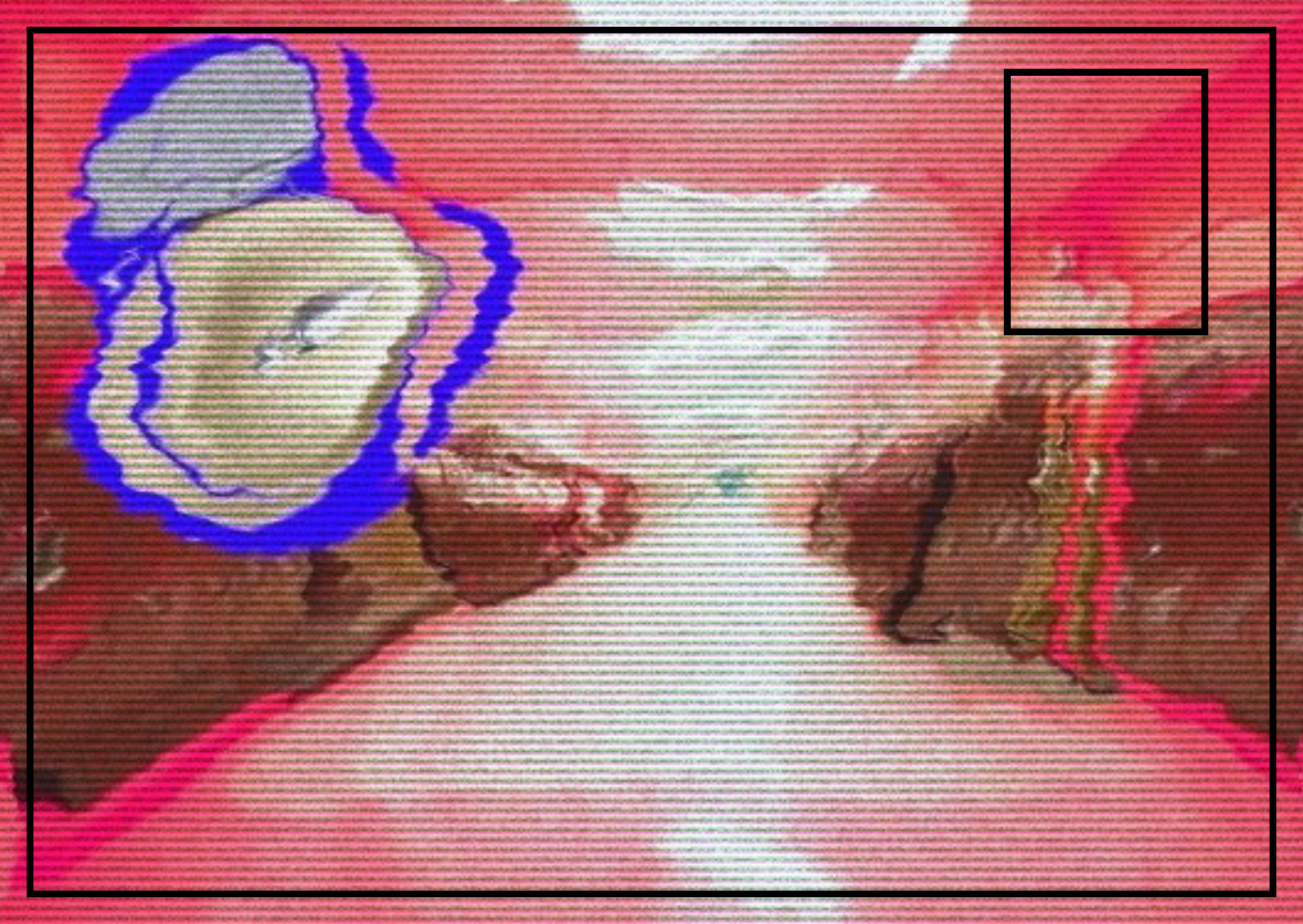Send us a postcard!
The following postcards are created from a conversation between the Blog x Edoardo Urso, Lavanderia’s curator of projects for young audiences. Our chat was mediated by the Mobilising Words1 card game and unfolded into an open-ended and unfinished dissection of our respective projects (Forever Young and the Archivio Liquido & the Blog). The postcards enact as little artefacts that collect and intensify some moments of our shared speculations about
what is “normative” in community building,
archives as social spaces
and
the tensions between structure and freedom in educational projects and creative platforms.
Join our conversation,
play with us,
imagine with us.
Send us a postcard
with your thoughts,
random words,
foggy images,
flashing references
or songs.
What comes up?

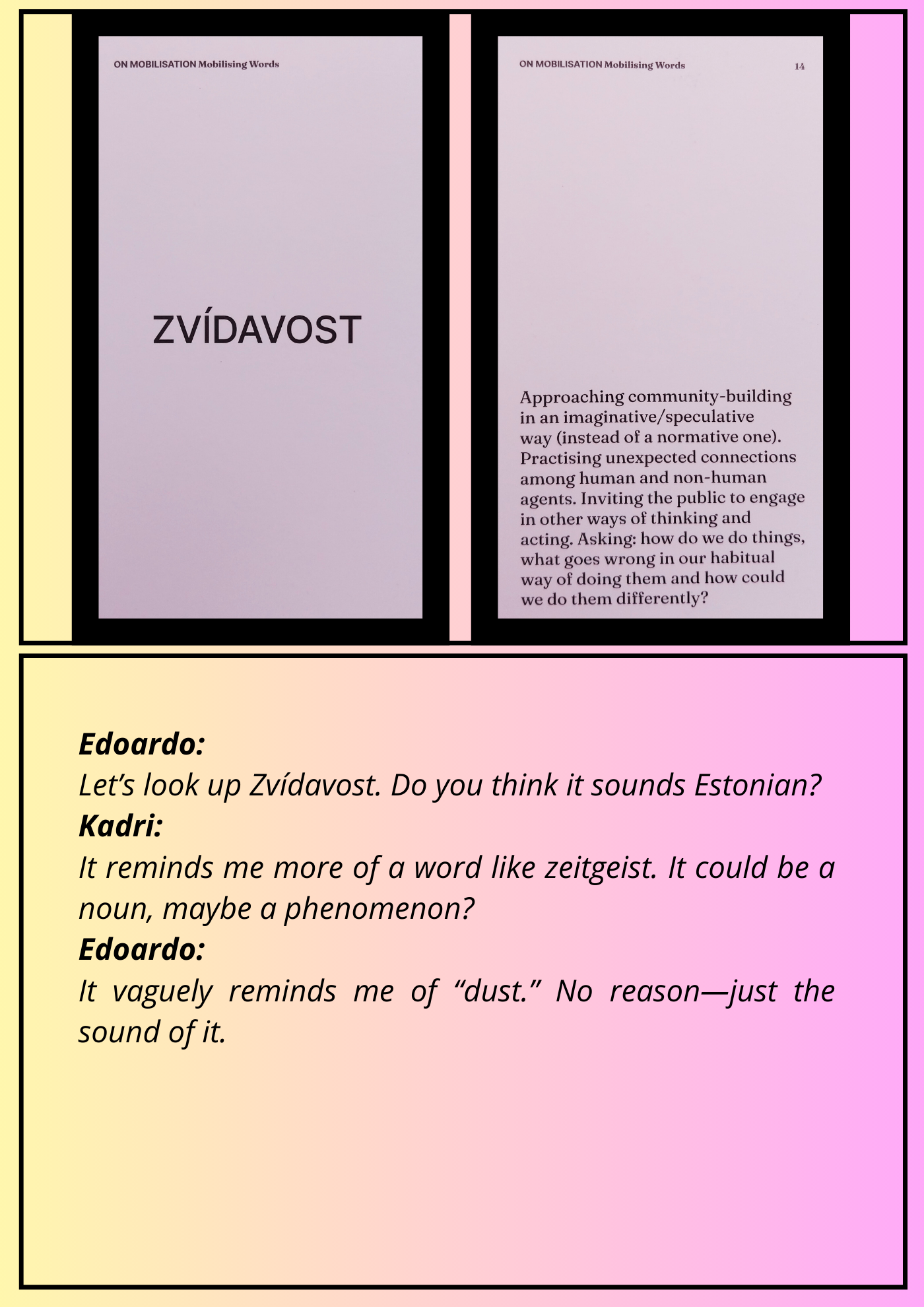

Kadri: This pairing is interesting, because I don’t know about you but I don’t know what “Zvídavost” really means. And I think that this not knowing, or being unfamiliar with the word, makes me focus on the text, the definition. Certain things stand out. For example, “approaching community building in an imaginative, speculative way instead of a normative one”?
I’m wondering—what exactly is “the normative one”?
Edoardo: Yeah, I was also wondering that because every community has its own way of doing things, so the idea of a “normative” approach to community building struggles me a bit. It depends on the context and the kind of project you’re setting up.
For instance, when I think about this definition in relation to Forever Young, my mind goes to school. We all have some kind of shared image of what school looks like—we’ve all been students, some of us are teachers or educators. So there’s a common baseline.
From there, we can begin asking: what could we do differently?
But the way I pose those questions changes depending on whether I’m speaking with teachers, students, teenagers outside of school, or young artists at Campi Gravitazionali.
Kadri: Okay but this is actually quite nice—this pairing invites us to place these questions within the specific communities we’re working with.
Talking about community building, I’m curious: what are the community-building capacities of an archive?
Edoardo: What would you say our archive community is like? From the point of view of Archivio Liquido and the Blog?
Kadri: I think it comes down to shared knowledge. It’s about how we access that knowledge, what narratives we create from it, the vocabulary we build, the kinds of imaginations generate from engaging with it… That makes us feel like we are…
Edoardo: Alive.
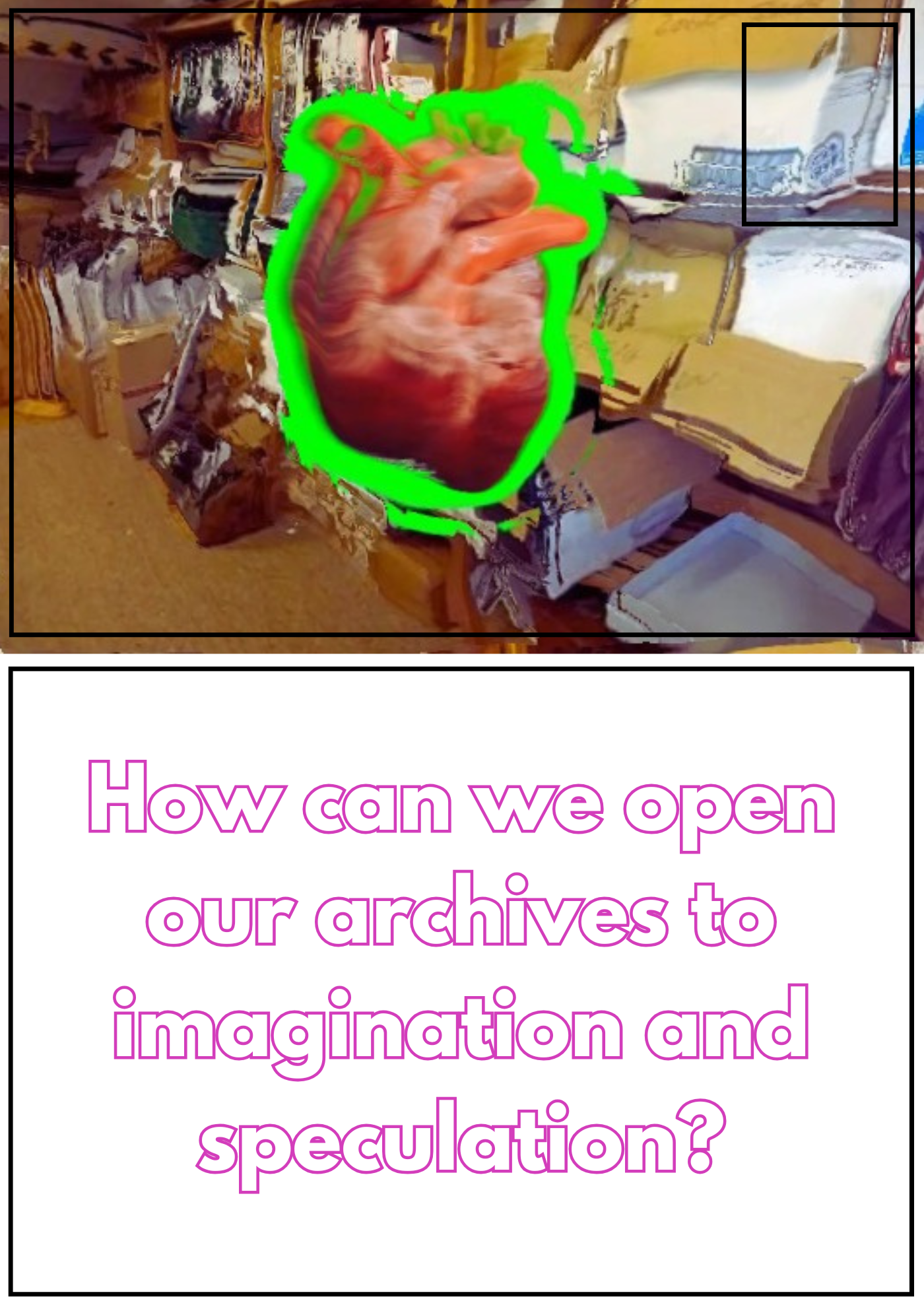
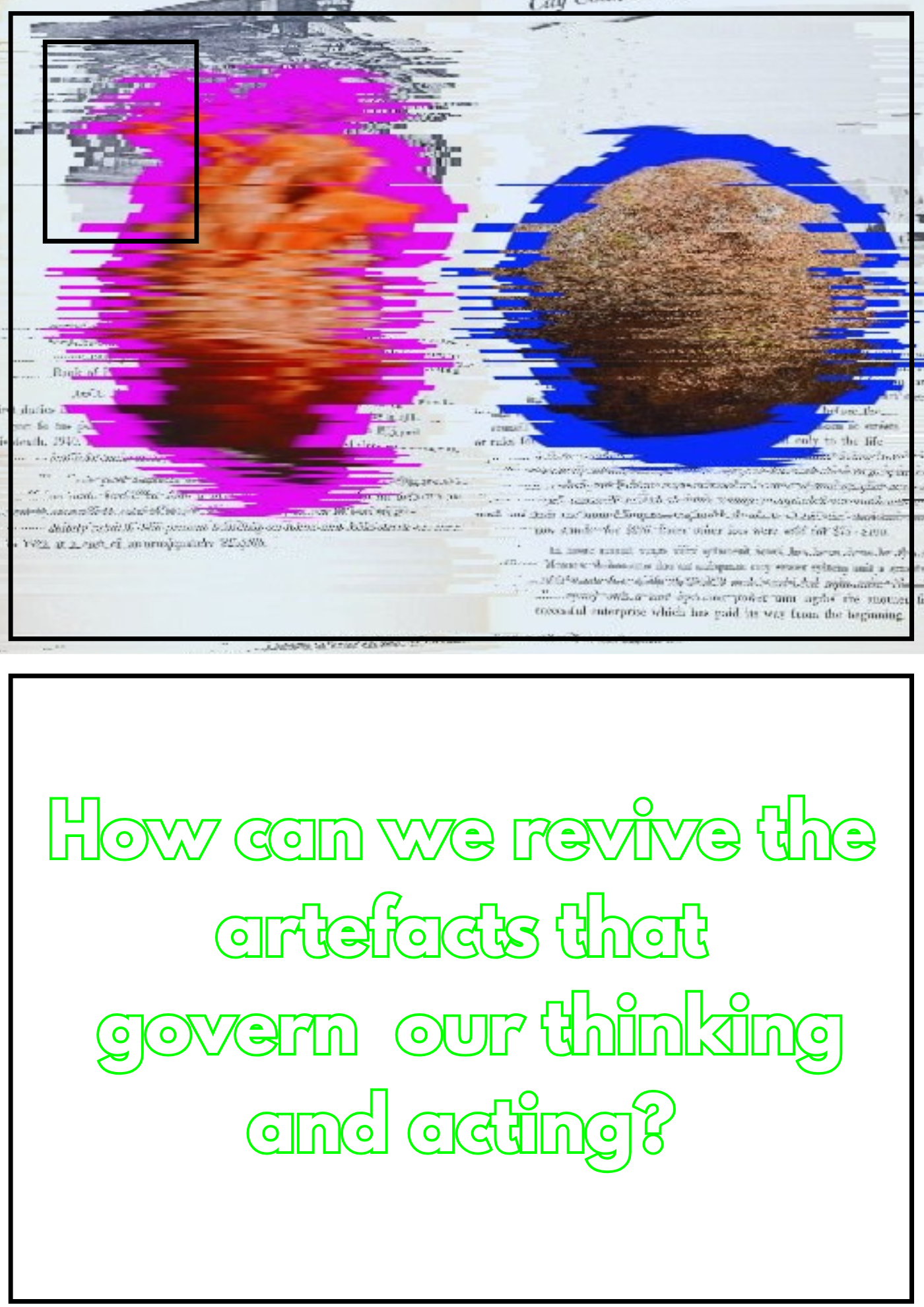
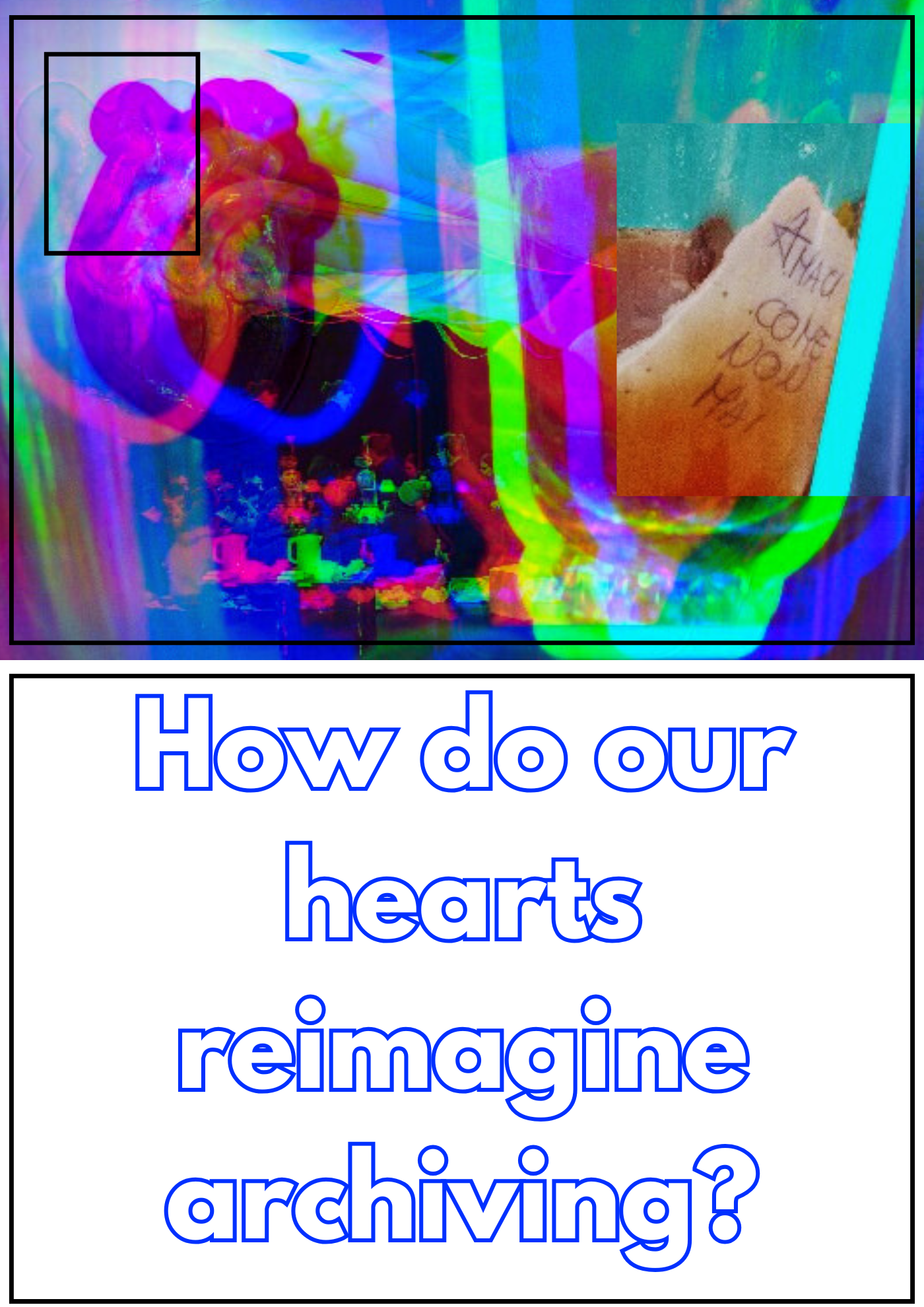
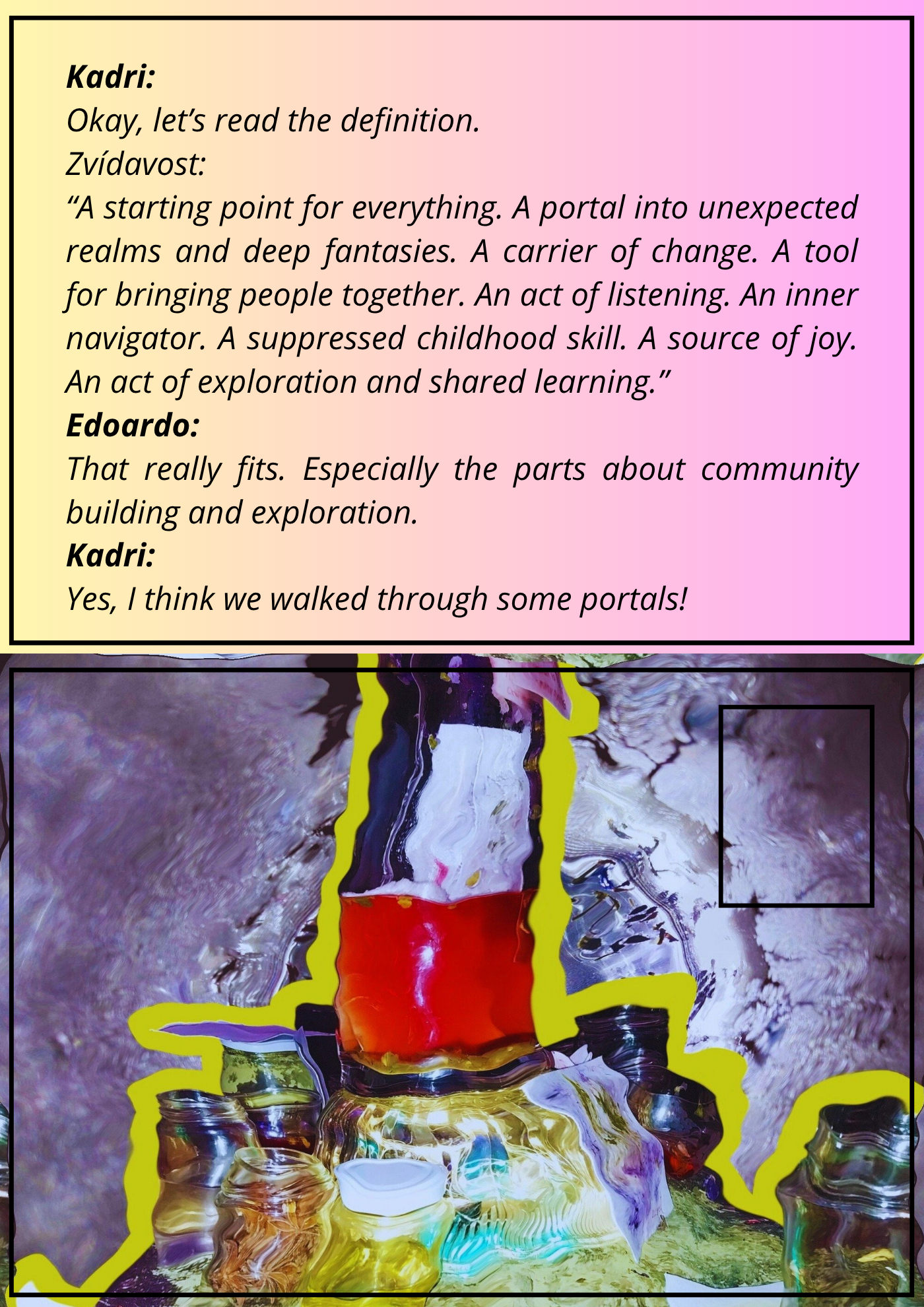
Let’s play again?
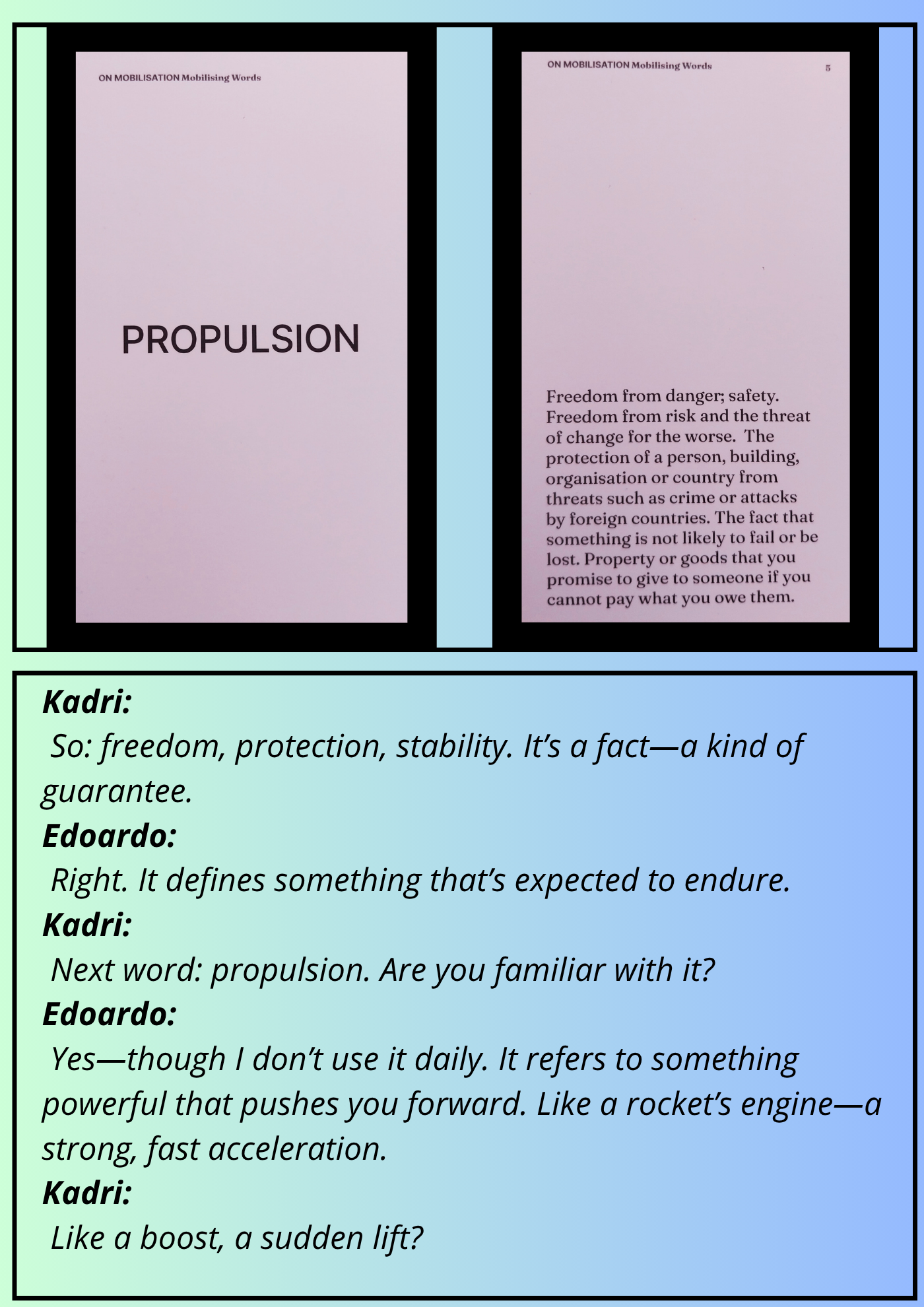

Kadri: But here’s a question: is feeling safe the same as feeling free? Can you be one without the other? Is “freedom from danger” really freedom?
Edoardo: Sometimes we feel most free precisely when we’re taking risks. It’s a dangerous situation, but I also feel free. My question is: if there are no dangers, am I truly free?
Kadri: Yes, “free from danger” implies some kind of protection?
Edoardo: Exactly. What you said captures something important. And protection here is also a fact—something isn’t likely to fail. But then again, what happens when the thing that’s meant to propel you—your “propulsor”—fails? What happens when something you thought would support you, actually lets you down?
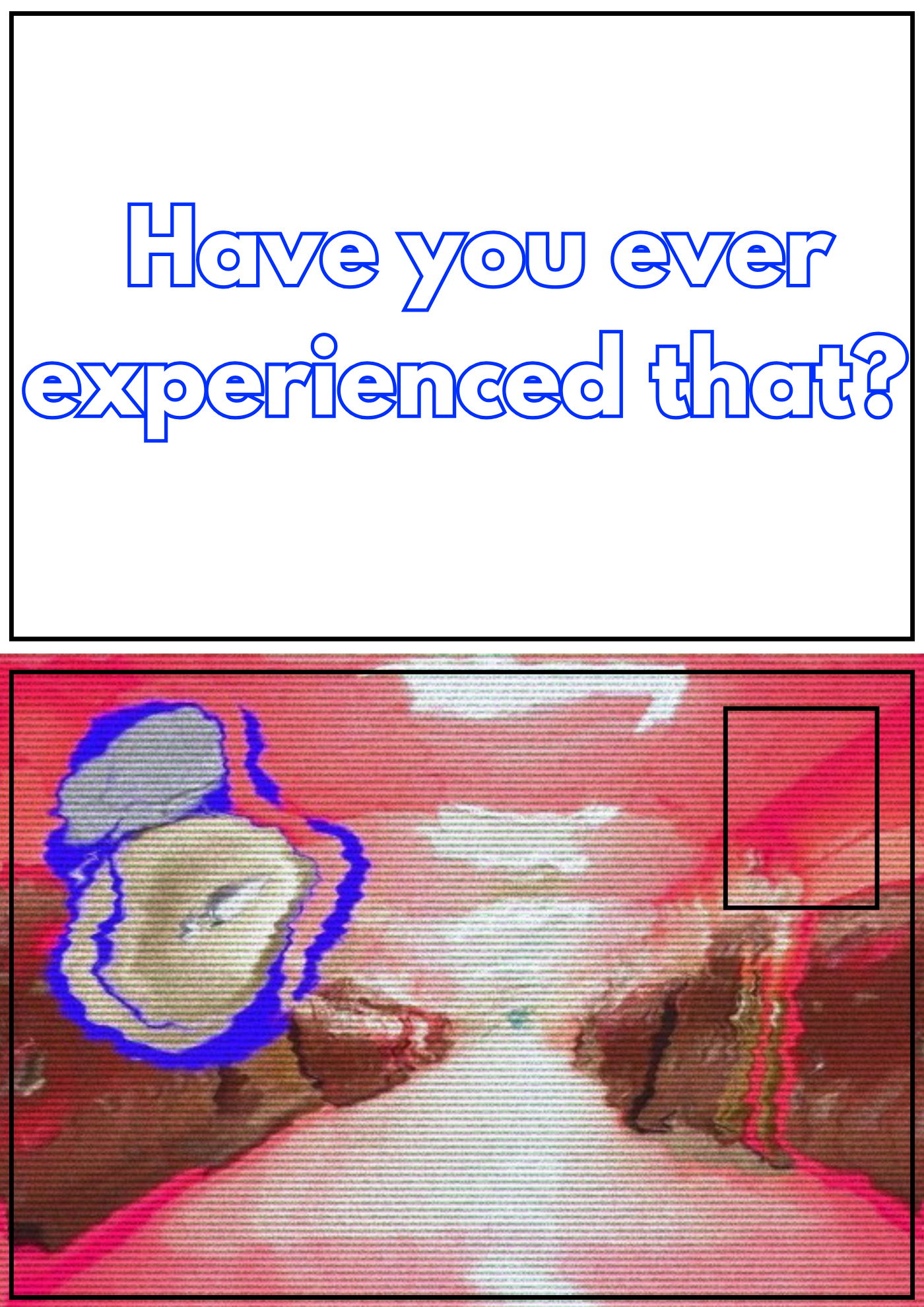

Edoardo: In Italy, we have the PCTO (Percorsi per le Competenze Trasversali e l’Orientamento) program in schools—projects meant to connect students with the professional world. They’re mandatory: 90 hours over three years. Students can divide the hours how they want, but they must complete them.
So, when we do School of Wish, we offer it as a PCTO project. That way, students can earn their hours while hopefully doing something they enjoy.
I thought that was a kind of propulsor—but I’ve realized it’s not. Students tend to see us as part of the school system, not as a space trying to imagine something different.
I wonder: do the students see School of Wish—as a PCTO—as a free space or a safe space?
Kadri: Maybe it’s a layered experience. On one level, the PCTO gives them a sense of legitimacy or trust—it’s approved, they’ll get credit. But on a deeper level, whether they feel free or not comes from the space you create with them.
Edoardo: What I’ve realized is that it takes time to reach that point of freedom—time to move beyond safety and into trust.
And once that trust is there, it can become a kind of propulsion. You feel the shift in the group. That’s when the magic happens—when you can create something meaningful together.
Kadri: Do you think that each person responds differently to that invitation? Also, like you said, it takes time. Stydents are used to being graded. Suddenly, they’re not—and that can be disorienting. Do you see that freedom as something to achieve during the project?
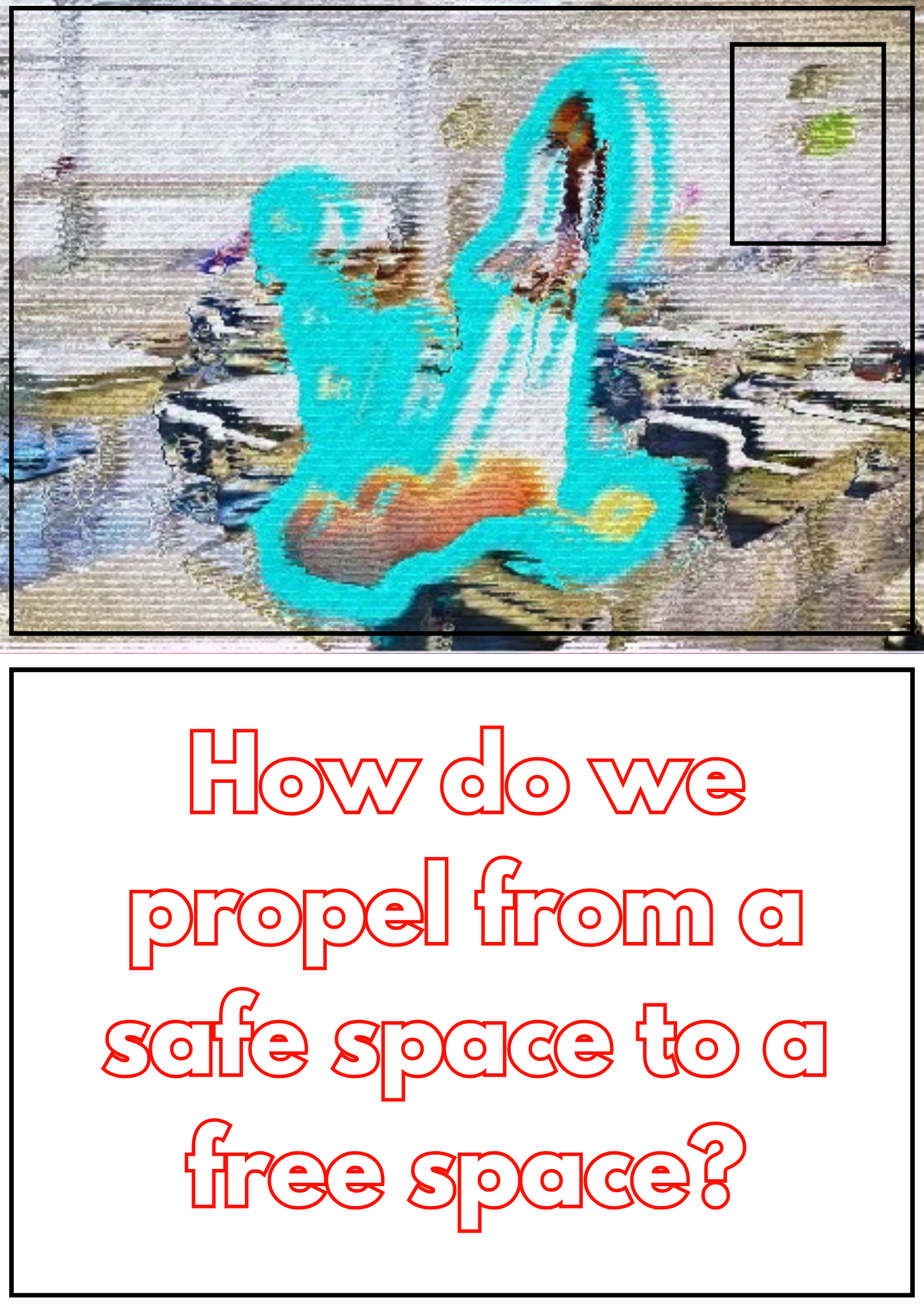
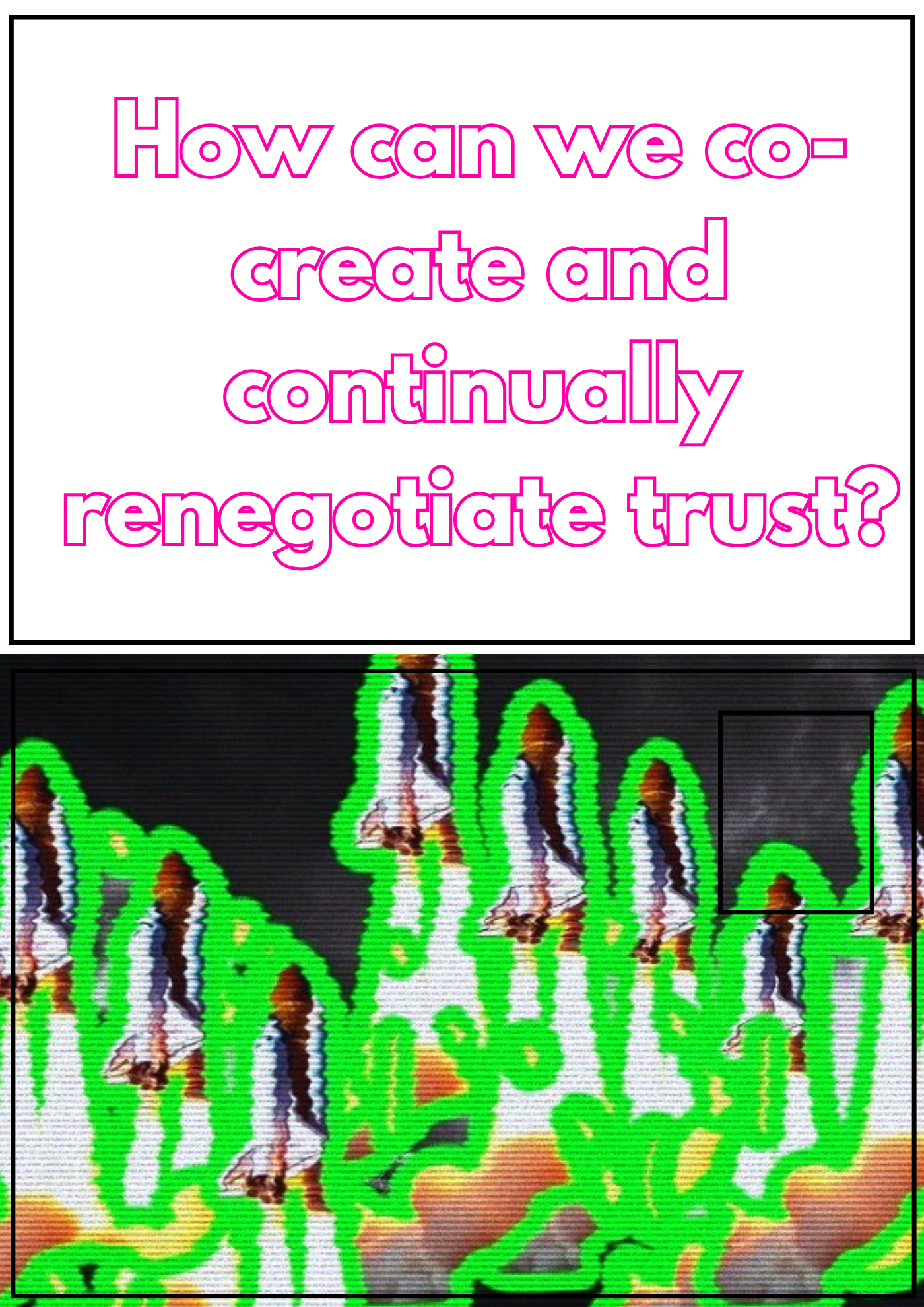

Edoardo: Absolutely. It’s my first priority. If we manage to create that space of freedom, the rest flows more easily. Everyone can be honest—say what they really think, instead of guessing what we want to hear.
As a team—me, Valentina, Fabio, Francesca, Paolo—we don’t have expectations. We’re not looking for specific results.

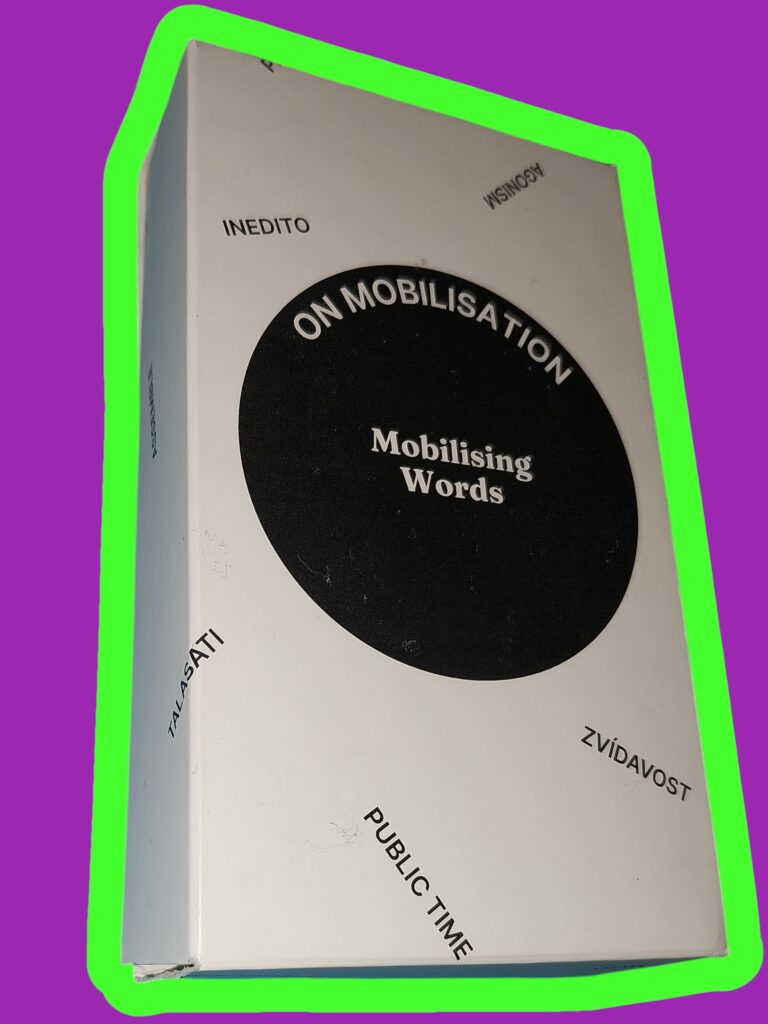
1Mobilising Words is card game that gathers the collectively built knowledge between parters and local communities of the On Mobilisation2 project and offers practical, poetic, and political insights into mobilising communities through culture, care, and creativity.
The game models a form of collective inquiry where words are not just linguistic units but tools for sense-making, reflection, and transformation.
It is available to download HERE!

2On Mobilisation is a project that from April 2023 continued over two years, focussing on community mobilisation through artistic processes.
With Lavanderia a Vapore as one of the partners (among wpZimmer, Baltic Art Center, Studio ALTA, and the two associated partners: Antwerp Research Institute for the Arts and Uppsala University Graduate School in Sustainability Studies), the main objective of the project was to respond to the need for transnational creation and circulation of knowledge through capacity bulding.
To celebrate the conclusion of the project in May 2025, there are now published two instruments – the On Mobilisation Toolkit and the Mobilising Words card game to share the knowledge that emerged from the project with the public.
Article created by Kadri Sirel.
